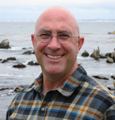The Children of 2007
This spring is a time for celebrations for my family. We just celebrated our first year in our house and the first anniversary of my starting full-time with EDC. Over the past few weeks two of my sons have graduated from college, and this Saturday my oldest daughter is getting married. Happy days indeed!
At times like these, it is hard not to reflect on the importance of the things we do—as parents, as teachers, and as citizens. I’ve also found myself thinking about the work we do here at ODI, trying to engage students in using data to learn more and to make better decisions; to prepare them for careers in an increasingly data-intensive world; and to help them be more effective consumers of data and better informed citizens.
My son Joe graduated from the Olin College of Engineering—a small, innovative institution not far from EDC’s headquarters in Massachusetts. The commencement speaker was the Pulitzer Prize-winning author and foreign affairs columnist for the New York Times, Thomas L. Friedman. His talk offered some incredible insights into why this work is so important, so I wanted to share some parts of it here that seemed especially relevant to ODI’s mission. He began by saying that he wasn’t sure of the proper term for the generation of the students graduating—whether they are “Gen Y” or “Millennials” or something else. “It doesn’t really matter,” he said, “because we are all the children of 2007.”
He went on to list out a series of key events that occurred during that single year: Steve Jobs introduced the iPhone; Hadoop was founded, which would allow the inter-connectivity of millions of computers worldwide; GitHub was launched, enabling global collaboration on developing and refining open-source software; Facebook was opened to the public; Twitter was spun off as an independent entity; Google launched Android; AT&T shifted to software-enabled networks, which allowed for 100,000% growth in data traffic over the following 5 years; Amazon released the Kindle; four roommates in San Francisco launched Airbnb; and Intel announced the shift to 45 nm microchip technology, which would allow them to continue pushing Moore’s Law into the future.
When we think about what “Big Data” is, and what it means to all of us, 2007 was key. As Mr. Friedman said, “This is the greatest release of energy into the hands of human beings since electricity and fire. And you are here to receive it.” Then he went on to explain:
It is changing the power of machines, which now have all five senses. It is changing the power of one; what one person can do now is amazing. It is changing the power of many; we as a collective are now a force of and in nature. We even have a geological era being named after us—the Anthropocene. And lastly it’s changing the power of ideas and flows, which now circulate globally, at a velocity we’ve never seen before.
This huge amplification of the power of one, the power of machines, the power of many and the power of flows has quickly brought humanity to an intersection we’ve actually never been at before as a species. Yes, ever since 8:15 AM on the morning of August 6, 1945, when an American B-29 bomber dropped an atomic weapon on the Japanese city of Hiroshima, triggering the nuclear arms race, we’ve been living in a world where a single government could conceivably destroy the whole planet and kill all of us.
We are entering a world, with the rising power of one and the rising power of machines, where one person could kill us all. We’re not there yet, but we’re heading there. It’s in our sights. And yet, at the very same time, at the very same junction, we’re approaching a world where if we so choose, we could actually fix everything. That is—acting together, we could actually feed, clothe and shelter every person, cure virtually every disease, increase the free time of virtually every person, educate virtually every child and enable virtually everyone to realize their full potential. If we put our minds to it.
I am sure that there are arguments to be made against such a bold statement. The problems our world faces are complex, and the barriers to solving them go far beyond the economic or the logistical. However, the power we are gaining over these problems is growing; and the key to using that power effectively lies in our skills to turn data into knowledge, and to use that knowledge to make the world a better place. And right now, as my kids launch off into the next chapters of their lives, that feels really important.
If interested, view a YouTube video of the entire commencement [Friedman is introduced to the stage at about 43:15].
- rKochevar's blog
- Log in to post comments



 Randy is director of the Oceans of Data Institute. Trained as a marine biologist, Randy has been involved in exhibit development, print and multimedia publishing, media relations and science education. He is an investigator on the Ocean Tracks, CODAP and Real World, Real Science programs.
Randy is director of the Oceans of Data Institute. Trained as a marine biologist, Randy has been involved in exhibit development, print and multimedia publishing, media relations and science education. He is an investigator on the Ocean Tracks, CODAP and Real World, Real Science programs.